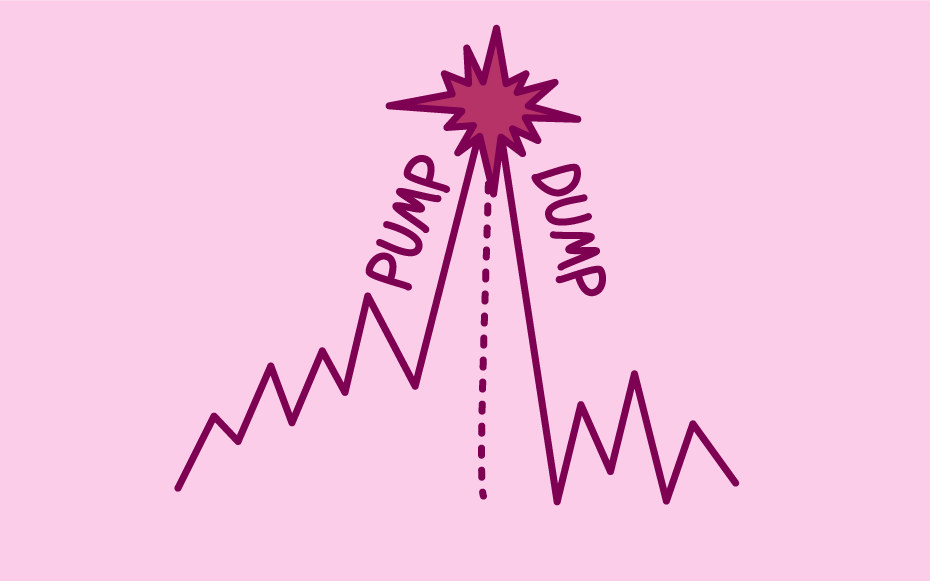The surge in crypto scams is alarming as con artists devise cleverer techniques to rob you of your hard-earned funds. Arm yourself with insights about the most prevalent types of crypto scams and strategies to protect yourself.
The crypto space is fraught with scams, which are becoming more intricate each day, ensnaring more and more unsuspecting victims. The Federal Trade Commission indicates that crypto fraudsters have swindled over $1 billion since 2021, and this figure is rapidly climbing. So, how do these swindlers con you, and what can you do to prevent falling prey?
Understanding the pig-butchering scam
In the pig-butchering scam, fraudsters typically establish long-distance, purely digital relationships to defraud victims. They lure victims through dating apps like Tinder and Grindr, and social platforms like Facebook and Instagram. Often, the conversation doesn't immediately veer towards crypto.
These romance scammers work to earn your trust before coaxing you into investing in specific crypto platforms, assuring you of substantial returns. However, these platforms are usually scammer-controlled, and the moment you transfer crypto, it's gone. Always avoid sending crypto to individuals you've never met physically.
Recognising pump and dump schemes
Pump and dump schemes are also common. These scams are built on hype, speculation, and hyperbolic claims. Scammers trick you into purchasing a newly minted, obscure crypto at a very "low price", promising skyrocketing returns.
When numerous victims fall for this and start buying, the price rapidly rises. The scammers then sell off their holdings at this inflated price, causing a sudden crash in the coin's value, leaving you with losses.
Scammers use various personas to promote new, dubious projects, making you invest only to rob you. Sometimes they pose as "investment managers". For example, some scammers have posed as EXMO.com employees to deceive our traders. We want to clarify that we never reach out to our customers through private messaging or social networks.
Some scammers don't even contact you directly. You may see misleading ads about fraudulent coins everywhere – on your favorite crypto-focused Telegram channel, Instagram stories, your usual crypto news websites, and even on city mall billboards!
Despite hearing about a new coin from a relatively reliable source, always conduct extensive research before investing. Scams are more prevalent than you may realize. According to Chainalysis, almost a quarter of the crypto tokens launched in 2022 were merely pump-and-dump scams.

How scammers exploit NFTs
In the NFT (non-fungible tokens) arena, scammers frequently utilize "rug-pull" schemes. They often impersonate celebrities to entice you into investing in counterfeit NFTs, disappearing as soon as they get your crypto.
Such scammers use real celebrity images on fraudulent accounts, articles, or ads to give the illusion that the celebrity is backing their NFT project. Always verify the authenticity of websites and accounts of famous personalities. Genuine accounts typically have a blue checkmark, and celebrities rarely contact fans personally.
Other common NFT scams involve the scammer posing as the author of the NFT.
You might receive a message stating your NFT has been sold for a significant amount, but to receive it, you must make a minimum deposit. Don't be fooled – high returns rarely come easily.
You might receive a message stating your NFT has been sold for a significant amount, but to receive it, you must make a minimum deposit. Don't be fooled – high returns rarely come easily.
Understanding the Ponzi scheme
Crypto thieves also use age-old methods like Ponzi schemes. Here, earlier investors are paid using the funds of newer investors, not from actual returns. Scammers lure new investors with enticing profit guarantees and low risk. However, remember that no one can guarantee profits and there are no risk-free investments!
Phishing attacks and how they work
Phishing attacks are another popular method among cybercriminals. Their goal is to acquire your personal data, account information, or even private keys to your crypto wallet. Scammers send you emails with malicious links to counterfeit websites or documents, encouraging you to click on them.
Scammers typically pretend to be reputable entities such as Walmart, Amazon, your bank, different utility providers, government agencies, and more. Some may even impersonate technical support agents to steal your login credentials. At EXMO.com, our support team never asks for your login information, password, or any banking details. We also never make calls to you or ask you to register on any third-party platform.

Identifying fraudulent websites
You might encounter fraudulent websites through more than just phishing attacks. If you see a platform advertising inexpensive crypto, it's probably a scam. These sites might advertise bitcoin at 5% below market value and promise significant returns for purchasing through their platform.
In reality, however, there is no exchange. When you try to withdraw your assets, you'll likely find they've disappeared. Investors typically don't realize they've been scammed until they've lost their money, so don't fall for these tricks!
Fake websites often try to mimic well-known crypto platforms, using domain names similar to but slightly different from the websites they're copying. Recently, we discovered a fraudulent website unlawfully using EXMO's old logo.
Please note, the only two official resources of EXMO.com are: https://exmo.com/ and https://exmo.money/.
Please note, the only two official resources of EXMO.com are: https://exmo.com/ and https://exmo.money/.
Beware of fake crypto apps
Scammers often trick crypto investors with fake apps available for download on Google Play or the Apple App Store. Although these apps are usually discovered and removed quickly, thousands of people have already downloaded them and lost money. Be careful!
Spotting crypto giveaway scams
Giveaway scams have become exceedingly popular among fraudsters. You'll find numerous scam posts on social media advertising bitcoin giveaways. Often, scammers may add you to dubious Telegram channels offering giveaways or tag you on Instagram, claiming you've won free crypto. Remember, nothing in life comes for free!
These so-called 'once-in-a-lifetime' opportunities are designed to mislead you. Once you click on the giveaway, you'll be asked to verify to receive free BTC, and that's when they steal your data! Verification often involves making one or several small payments. In all these instances, you won't get your money back or any free bitcoins.
Unfortunately, the chances of retrieving your money after a crypto scam are slim because crypto transactions are irreversible, and scammers exploit this feature.

Effective ways to avoid falling prey to scams
While scammers are becoming more aggressive in their attempts to steal your crypto, there are simple measures that can help you safeguard your assets.
Always conduct your own research (DYOR) before investing in any crypto project or selecting a crypto exchange to invest in. Scammers often apply psychological pressure to rush you into investing before you can thoroughly research. Never give in to this! Ensure the token or coin is valid and backed by a reliable community. Check their website and read articles from credible sources as well as reviews from other investors or traders.
Safeguard your private keys! Your private keys function as your password, allowing access to your crypto holdings. If anyone gets hold of them, they can swipe all your assets. Never share your private keys or any crypto-related information, even with people you know. Store them securely, like in offline storage. For more details, read our comprehensive article on how to secure your assets.
Avoid trusting unsolicited messages! Be cautious if you receive a message promoting a crypto asset or NFT. Scammers often use email, social media, and other messaging platforms to draw people into their scams, posing as a reputable entity, popular brand, celebrity, or even a potential romantic partner.
Manage your expectations and greed. Investments that promise substantial returns with minimal risks are always fraudulent. No one can assure easy and quick money without risks, especially in the volatile world of cryptocurrency. Always assess the risks involved in the crypto market.
Intelligent as scammers may be, remember, you are smarter! Staying vigilant and following these tips will help you safeguard your assets.
In conclusion, the cryptocurrency space, while filled with promising opportunities, is also ripe with scams and fraudulent activities. This has become increasingly evident in 2023 with the rise of sophisticated scam methods such as pig-butchering, pump-and-dump schemes, NFT-related scams, Ponzi schemes, phishing attacks, fake websites, fraudulent crypto apps, and giveaway scams.
However, by remaining informed and vigilant, and by adhering to best practices such as conducting thorough research, safeguarding private keys, ignoring unsolicited messages, and managing your expectations, you can keep your crypto assets secure and steer clear of falling victim to these scams. Always remember, if something appears too good to be true, it probably is.
